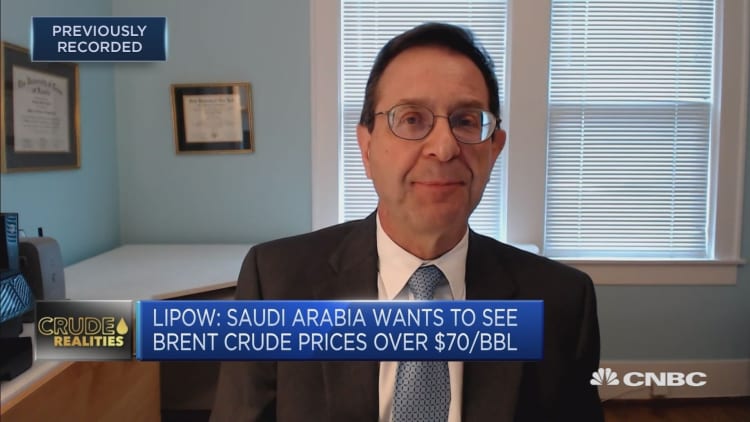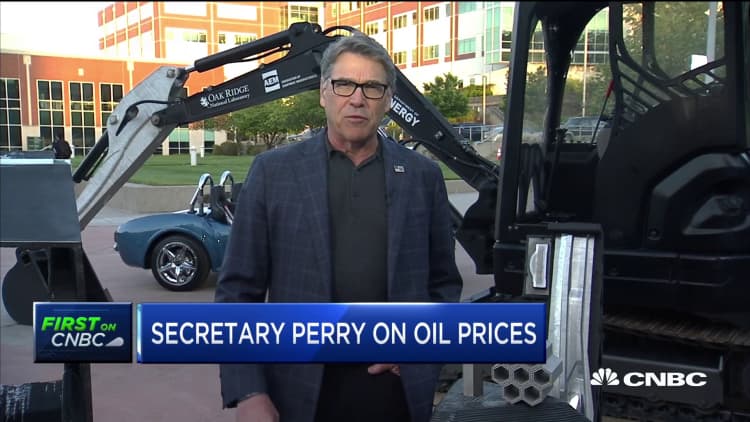Oil prices tumbled on Tuesday as renewed doubts over U.S.-China trade talks stoked concerns over global growth, but U.S. sanctions on Iran and Venezuela tightened supply and helped to stem losses.
U.S. President Donald Trump on Sunday said he would raise tariffs on $200 billion worth of Chinese goods from 10-25% by Friday. The comments dragged on both Asian and U.S. stock markets.
U.S. West Texas Intermediate crude futures settled 85 cents lower at $61.40 per barrel, dropping 1.4% to the weakest closing price since March 29.
Brent crude oil futures fell $1.31, or 1.8%, $69.93 per barrel around 2:30 p.m. ET (1830 GMT), on pace for the lowest settle since April 4.

"An escalation in the U.S.-China trade war has brought oil prices under renewed pressure," said Abhishek Kumar, head of Analytics at Interfax Energy in London.
"The spat has reinvigorated demand-side concerns, given that the conflict has been adversely impacting prospects for global economic growth."
On the supply side, oil markets remain tense as the United States has tightened sanctions on Iranian oil exports and plans to bulk up its forces in the world's top oil-exporting region.
U.S. officials announced on Sunday that the movement of the Abraham Lincoln carrier strike group and a bomber task force towards the Middle East was meant to counter "credible threats," but Tehran dismissed the move as "psychological warfare."
"The threat of military action with Iran appears to have heightened ... This has allowed the oil complex to gain some footing after WTI has been beaten down during the past couple of weeks by some unexpectedly large crude supply increases," Jim Ritterbusch, president of Ritterbusch and Associates in Chicago, said in a report.
U.S. sanctions have already halved Iranian crude exports over the past year to less than 1 million barrels per day (bpd), with shipments to customers expected to drop to as low as 500,000 bpd in May as sanctions tighten.
U.S. Energy Secretary Rick Perry said on Tuesday that Saudi Arabia was increasing its oil production to meet needs arising from sanctions on Iran.

Bank of America Merrill Lynch said it expected Saudi Arabia "to bring back oil production slowly as Iranian barrels exit the market," adding that it expects Brent to have a floor at $70 a barrel in current market conditions.
Washington has also placed sanctions on oil exports from Venezuela, a founding member of OPEC.
Some analysts, however, predicted production curbs agreed by OPEC and other producers such as Russia would continue to boost prices.
"The recent Brent pullback has taken prices too low in the face of tight fundamentals and growing supply risks, just as refiners come back from extended spring turnarounds," Goldman Sachs said.
In the United States, meanwhile, crude stocks have climbed to their highest since September 2017 and were forecast to have added another 700,000 barrels last week, according to analysts in a Reuters poll.

